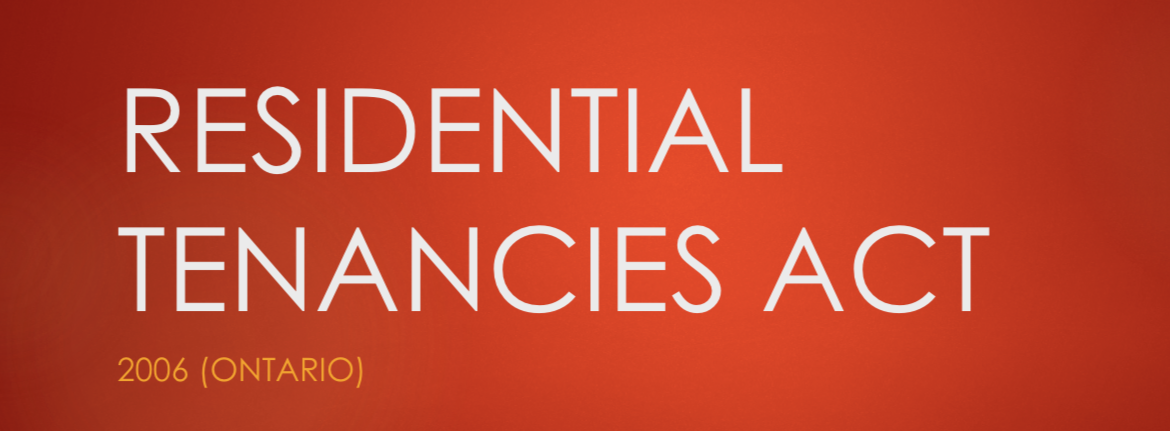
On September 1st, 2017, the Rental Fairness Act 2017 came into effect, with some important Tenant rights that make it harder to be a Landlord in Ontario. We’ve outlined the three most important changes to Landlord’s obligations below.
RENT CONTROL
Before:
- Properties built after 1991 were not subject to Rent Control increase guidelines. Landlords could raise the rent as much as they wanted after the initial fixed-term lease. This wasn’t good news for tenants, I’m sure you remember the news stories about a few unlucky tenants whose rents drastically increased from 1800/mo to 3200/mo in a downtown condo!
- Landlords could apply for rent increases above the guidelines if their utilities or municipal taxes had increased by extraordinary amounts.
Now:
- All properties, irrespective of build date, may not increase rent by more than the allowable percentage – for 2017 that’s 1.5% and 1.8% for 2018.
- Increased utility costs are not considered a valid reason to increase rent beyond the guidelines.
These new guidelines only impact existing, ongoing tenancies. So if a tenant leaves on their own volition, a landlord can increase the rent as much as they’d like. Of course, an excessive rental price might result in their place sitting empty for a long time!
TERMINATION BY LANDLORD
Before:
- A landlord could only terminate a (month-to-month) Tenant with 60 days notice if the Landlord, or one of their immediate family members, wanted to move into the unit.
Now:
- If a Landlord (or their family member) wants to occupy the unit, they must compensate the Tenant with one month’s rent or offer them another acceptable unit. The Landlord must occupy the unit for at least one year.
- If the Landlord advertises the unit for rent or sale, re-rents, demolishes or converts the unit within 12 months of the Tenant vacating, the Landlord is subject to a fine of up to $25,000.
While there are other changes to the Residential Tenancies Act, these are the main ones. For a complete picture visit Residential Tenancies Act.
There’s no doubt that the new Rental Fairness Act will impact Landlords and the rental market in Toronto. While intended to make it easier to be a Tenant, many people (us included) believe it will lead to a decreased supply of rental units and higher prices. We’ve already seen multiple offers on the first day that a condo rental comes to market, and with these new legislations, landlords are realizing that their earning potential from rental properties is dwindling. Many purpose built rental condos that were slated to be built have been cancelled, and will be built as condos for sale. If landlords find themselves losing money because of increased utilities/taxes/maintenance, you can be sure that they’ll liquidate, leaving fewer condos for tenants to occupy.
Here’s a thought to leave you with. Our immigration rate is forecasted to be 30,000 people per year. Where will they live if the rental market shrinks?


